Do Solar Panels Work On Cloudy Days?
Utilizing the sun’s energy through solar panels is a brilliant way to power our homes and reduce our carbon footprint. But what happens when the sun plays hide-and-seek behind the clouds? Can we still rely on solar panels on overcast days?
This question often surfaces when considering solar power as a viable energy source. We’re here to shed light on this topic and debunk any misconceptions about the efficiency of solar panels on cloudy days. Let’s dive into the science behind photovoltaic technology and its performance under different weather conditions.
How Do Solar Panels Work?
Solar panels, also known as photovoltaic panels, are a key component in harnessing solar power for electricity. These panels are made up of numerous solar cells which are essentially tiny semiconductors.
When sunlight hits these solar cells, it knocks electrons loose from their atoms. As the electrons flow through the cell, they generate electricity. This process is known as the photovoltaic effect. Thus, solar panels produce electricity directly from sunlight.
It’s an incredible solar panel technology that converts the inexhaustible power of the sun into usable energy, helping to power homes and businesses with clean, renewable energy.
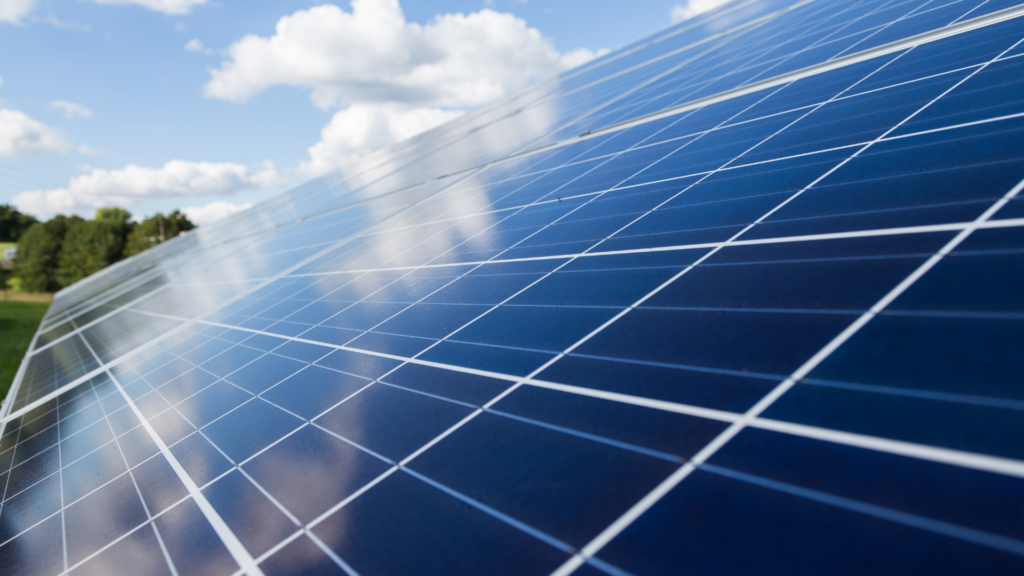
How Do Solar Panels Work On Cloudy Days?
Solar panels are an impressive technology that harness solar power, even when the weather isn’t perfectly sunny. So how do solar panels work on cloudy days?
On cloudy days, solar panels continue to work by converting the available light into electricity. While it’s true that cloud cover can reduce the efficiency of solar panels, they don’t stop producing power altogether.
The photons in daylight can still reach the solar panels through the clouds and generate electricity. However, due to the reduced intensity of sunlight, solar panels may produce less power compared to clear, sunny days. Despite this, solar power remains a reliable renewable energy source, capable of operating effectively in various weather conditions including cloudy weather.
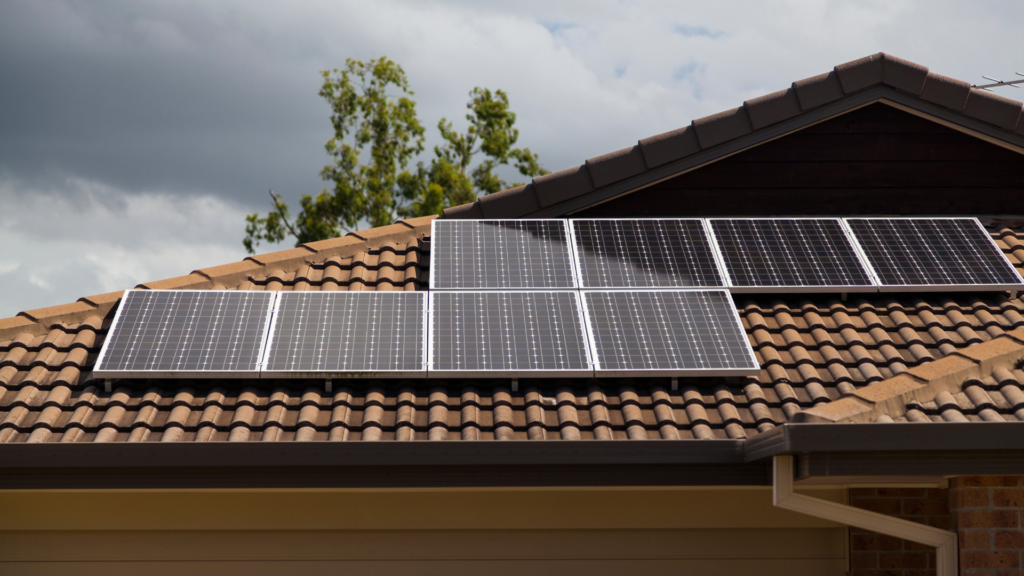
How Efficient is a Solar Panel On a Cloudy Day?
Solar panel efficiency is a crucial aspect to consider when understanding the productivity of solar energy systems. Even on a cloudy day, solar panels can operate, although not always at their peak performance. The level of efficiency varies with the degree of cloud cover.
For instance, on a heavily overcast day, you can expect solar panels to work at about 10-25% efficiency. During partly cloudy conditions, the efficiency can go up to between 50-80%. High-efficiency panels have an edge as they produce more energy than conventional panels even on a cloudy day, making them suitable for cloudy climates or areas with partial shading from trees.
However, it’s important to note that while solar panels can function in low light conditions such as cloudy days, they are most effective under direct sunlight, which allows them to produce the maximum power.
What’s The Best Solar Panels For Cloudy Days?
Even on cloudy days, your quest for harnessing solar energy doesn’t have to be hindered. The best solar panels for cloudy days is one that maximizes solar energy generation despite the weather.
Monocrystalline panels, with their high-efficiency ratings, are known to perform exceptionally well under diffused light conditions, making them a prime choice. These panels, coupled with advanced technologies like PERC (Passivated Emitter and Rear Cell), can significantly boost solar panel performance, ensuring you get the most out of your investment. So, even when the sun hides behind the clouds, your power supply doesn’t have to waver.
Do Solar Panels Need Direct Sunlight or Just Light?
Solar panels, contrary to popular belief, do not strictly require direct sunlight to function. While it’s true that solar panels work most efficiently in direct sunlight, they also harness energy from indirect or diffused light.
This means that even on overcast days, your solar panel can still generate some level of power. The key principle here is that any light source, not just the sun, can stimulate the photovoltaic cells in the solar panel, leading to electricity production.
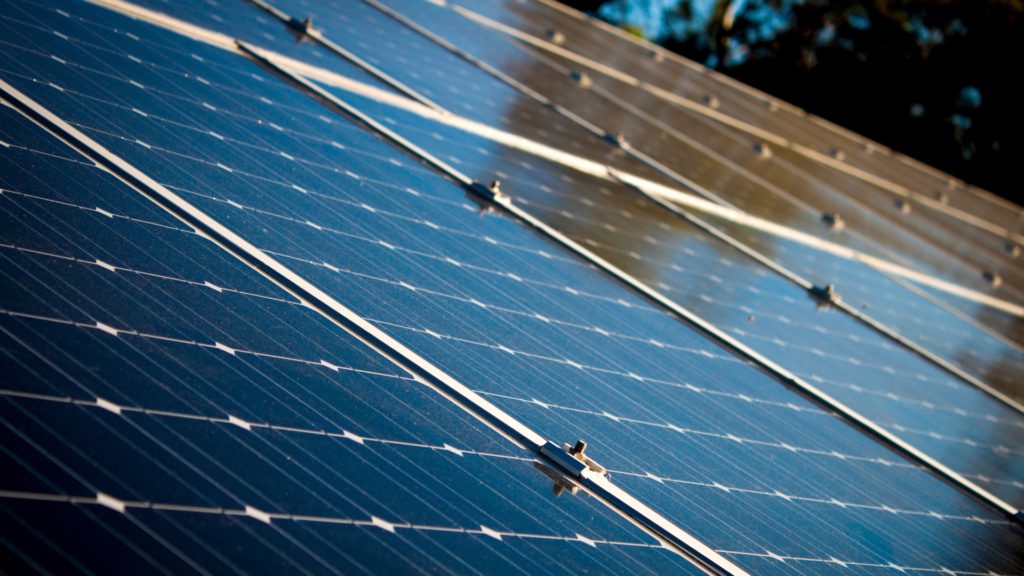
Does Installing Solar Panels Save You Money?
Installing solar panels can significantly reduce your energy bills. When you power your home with a solar system, you harness the sun’s free and abundant energy, thereby lessening your reliance on traditional electricity sources.
This reduction in energy consumption from the grid directly translates into lower monthly energy bills. Over time, these savings add up and can offset the initial cost of the solar system, making them a financially smart choice for many homeowners. With the longevity of solar panels, which can efficiently produce electricity for 25 to 30 years, you’re looking at long-term savings that make an impressive case for solar energy.
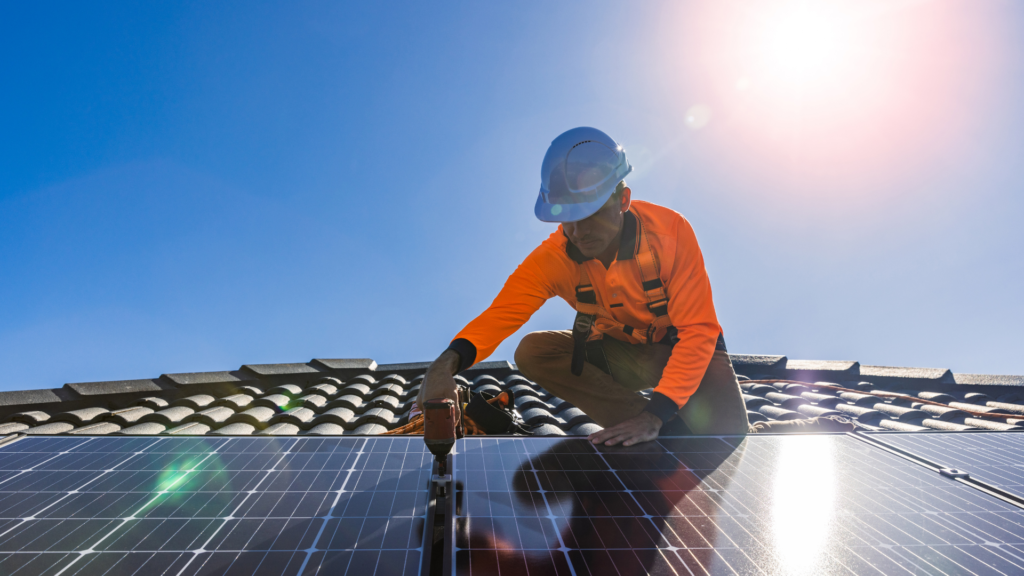
Tips To Improve The Efficiency Of Solar Panels During A Cloudy Day
Despite popular belief, solar panels work even in a cloudy climate. The efficiency of your solar panels during a cloudy day can be maximized with a few strategic tips.
To improve this, ensure that your panels are clean from any dust or debris that could hinder the absorption of available light. Additionally, consider the use of solar panel technologies like solar trackers which adjust the position of your panels throughout the day for maximum exposure.
High-quality solar panels with advanced features are designed to perform well under various weather conditions, including overcast skies, thus enhancing their productivity during cloudy days.
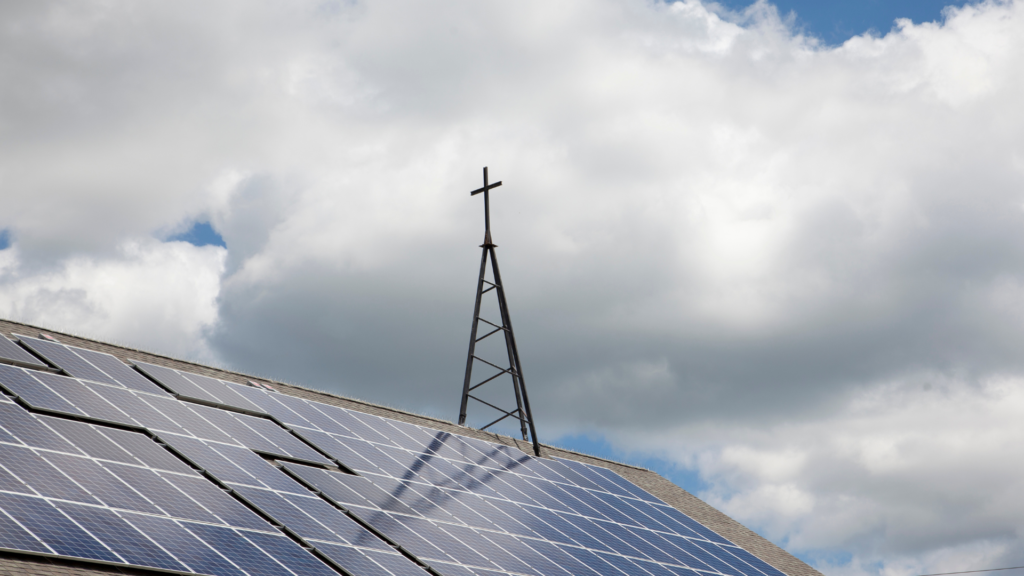
Solar Battery Storage
An essential addition to improving the efficiency of your solar panel system, particularly in a cloudy climate, is the integration of solar batteries. They store excess power generated during peak sunlight hours, which can then be used when the solar panels’ efficiency might be compromised, such as during cloudy or rainy days.
This not only ensures a constant power supply but also significantly enhances the overall productivity and efficiency of your solar panels. With solar batteries, you can utilize your solar panel system to its fullest potential, regardless of the weather conditions.
Net Metering
Net metering is a vital strategy that can enhance the efficiency of your solar panel system, especially during cloudy days when the panels may not generate enough electricity. This system allows homeowners to feed excess solar power back into the grid, which is then credited against their electricity consumption from the utility company.
This way, even if your solar panels don’t produce enough electricity due to poor weather conditions, you can still maintain a steady power supply. Net metering makes solar power more cost-effective and ensures that no energy goes to waste.
Get Started With Solar Panels Today!
In conclusion, solar panels do indeed work on cloudy days, albeit at a reduced efficiency. Just like how you can get a sunburn on a cloudy day, solar panels can still produce electricity when the skies are overcast. The future of renewable energy is bright and resilient, much like the technology itself.
If you’re considering making the switch to solar, don’t let a few cloudy days deter you. Take the next step towards sustainable living with Zircon Solar. Our experts are ready to help you harness the power of the sun, rain or shine. Contact us today and let’s illuminate your home with clean, green energy.
-
Do Solar Panels Work On Cloudy Days?
- How Do Solar Panels Work?
- How Do Solar Panels Work On Cloudy Days?
- Do Solar Panels Need Direct Sunlight or Just Light?
- Does Installing Solar Panels Save You Money?
- Tips To Improve The Efficiency Of Solar Panels During A Cloudy Day
- Get Started With Solar Panels Today!
- Save More On Your Electric Bill!
Save More On Your Electric Bill!
Get A free consultation and see how you can save with solar today!
Free Consultation